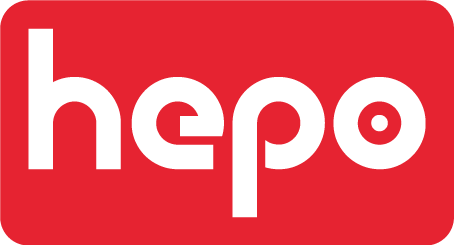HEPO ALIGNMENT WITH CULTURE AND VALUES
Element | People and Culture Department | Human Values Department | How HEPO Supports |
Core Values and Ethical Foundations | Aligns HR strategies with organizational values. | Embeds ethical principles in decision-making. | HEPO integrates core virtues like integrity and dignity into KPIs, providing a platform for aligning actions with organizational values. |
Leadership and Management Style | Fosters inclusive, empathetic leadership. | Ensures leaders act with integrity and accountability. | Provides tools for leadership evaluation, aligning leadership actions with strategic and ethical goals. |
Employee Well-Being and Mental Health | Supports work-life balance, stress management, and wellness programs. | Promotes dignity and self-respect in workplace practices. | Tracks employee wellness scores and integrates flexible scheduling to improve well-being. |
Diversity, Equity, and Inclusion (DEI) | Drives inclusive hiring and equitable practices. | Ensures fairness and respect for individual differences. | Includes diversity metrics in KPIs and tools for inclusive team dynamics. |
Communication Style and Transparency | Encourages open communication across departments. | Promotes trust through transparent actions. | Offers real-time collaboration tools and transparent reporting dashboards. |
Collaboration and Team Dynamics | Builds cohesive, high-performing teams. | Embeds values like loyalty and mutual respect in team interactions. | Provides collaboration modules and cross-functional alignment tools. |
Performance Management and Recognition | Evaluates contributions beyond productivity. | Measures contributions to values-driven goals. | HEPO’s virtue-based KPIs reward actions aligned with core values. |
Learning and Development (L&D) | Focuses on skill-building and career advancement. | Develops leadership with high moral standards. | Offers personalized training paths and mentorship aligned with organizational values. |
Innovation and Agility | Encourages creativity and adaptive problem-solving. | Balances innovation with ethical responsibility. | Provides predictive analytics and goal alignment tools for agile decision-making. |
Social Responsibility and Sustainability | Embeds CSR initiatives into organizational strategies. | Ensures operations reflect ethical and sustainable practices. | Tracks sustainability KPIs and aligns business actions with corporate responsibility goals. |
Ethical Foundations | --- | Embeds human virtues like honor, trust, and integrity into operations. | HEPO connects virtues to actionable metrics, ensuring measurable ethical impact. |
Purpose-Driven Leadership | --- | Aligns leadership behaviors with ethical standards and long-term vision. | Enables alignment of leadership actions with corporate purpose. |
Organizational Dignity | --- | Fosters an environment where employees feel respected and valued. | Tracks metrics like inclusion, diversity, and satisfaction to ensure dignity is maintained. |
Virtue-Oriented Workforce Engagement | --- | Builds a culture where values like trust and responsibility are actively pursued. | Integrates virtue-driven KPIs and feedback systems to promote meaningful engagement. |
Transparency and Trust | --- | Ensures openness in processes and decisions. | Offers transparent audit trails, real-time insights, and ethical auditing tools. |
Cultural Stewardship | --- | Actively manages and nurtures organizational culture. | Embeds cultural metrics into operations, allowing leaders to track and maintain cultural alignment. |
Sustainability and Societal Impact | --- | Encourages operations that prioritize environmental and societal welfare. | Tracks CSR investments and sustainability scores, ensuring alignment with ethical goals. |
Employee Empowerment and Autonomy | --- | Provides resources for self-directed growth and decision-making aligned with corporate values. | Integrates career development tools and flexible work management options. |
Harmony Between Purpose and Profit | --- | Balances ethical responsibilities with financial success. | Aligns operational metrics with broader ethical goals, using integrated KPIs and analytics. |
Resilience and Adaptability | --- | Ensures readiness to respond to market changes while maintaining ethical principles. | Provides scenario planning tools and predictive analytics for adaptive decision-making. |
Virtue-Based Decision Frameworks | --- | --- | A unique HEPO feature enabling all decisions to be guided by values like integrity, honor, and accountability. |
Ethical Recognition Systems | --- | --- | Rewards behaviors and decisions that reflect organizational virtues and values. |
Harmony Metrics | --- | --- | Tracks alignment between organizational values, employee actions, and overall outcomes. |
Values-Driven Career Pathing | --- | --- | Empowers employees with career development options aligned with corporate virtues and goals. |
Dignity and Gravitas Measurement | --- | --- | Provides metrics to evaluate the dignity and seriousness applied to roles and responsibilities. |
Integrated Virtue KPIs | --- | --- | Embeds virtues like responsibility, bravery, and sacrifice into performance evaluation systems. |
Cultural Harmony Audits | --- | --- | Conducts periodic audits to assess the alignment of corporate actions with stated values and cultural goals. |
Employee Contribution Recognition | --- | --- | Tracks and celebrates individual and team contributions that uphold organizational values. |
Values-Driven Scenario Planning | --- | --- | HEPO’s AI-driven tools align risk management and contingency planning with ethical standards and values-based outcomes. |
